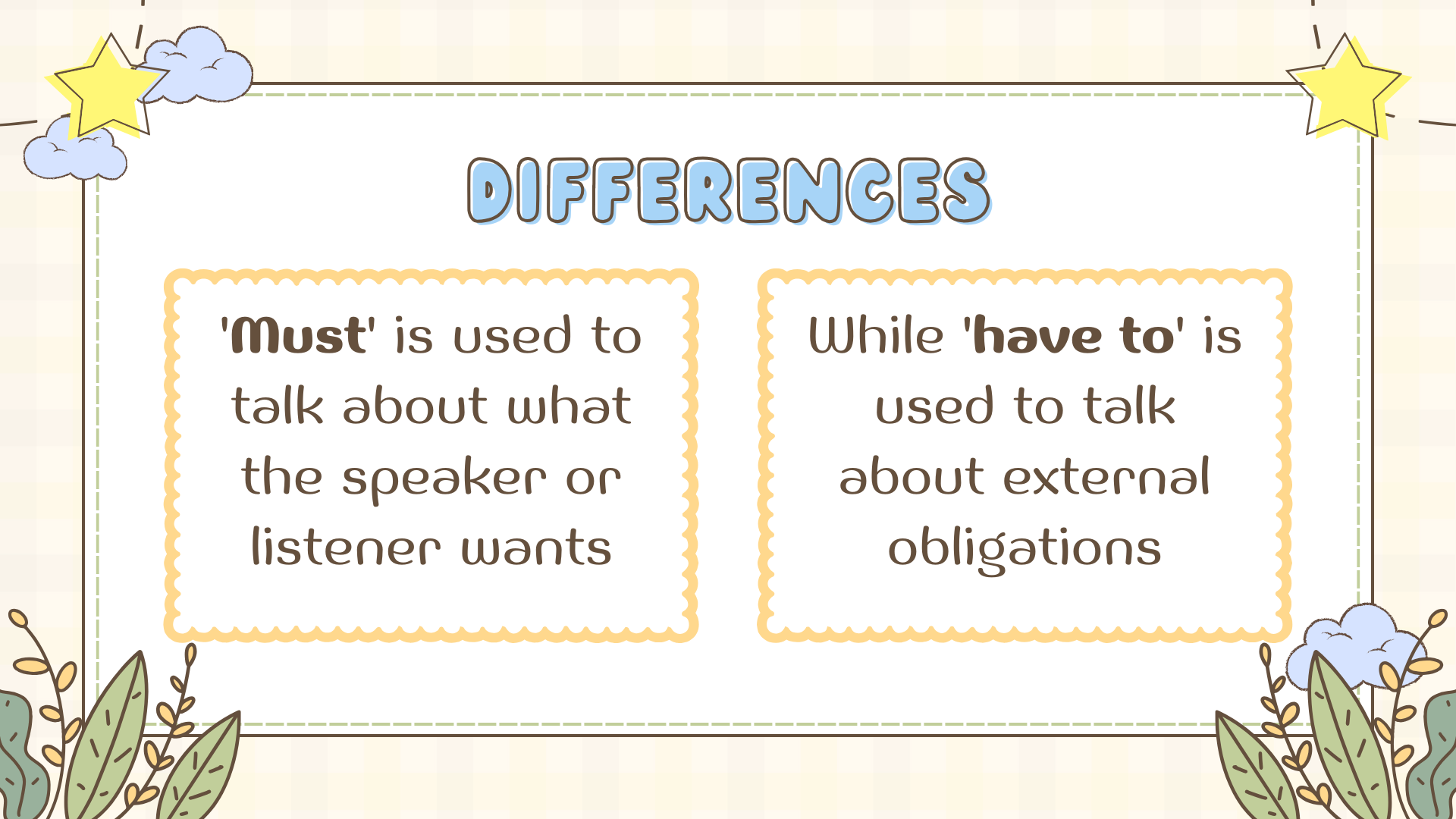Must e have to

In inglese, le espressioni "must" e "have to" sono usate per parlare di obblighi, necessità o requisiti. Sebbene abbiano significati simili, ci sono alcune differenze importanti nel loro uso. Esaminiamo insieme come si usano in modo corretto, sia nella forma affermativa, negativa, che nelle domande.
1. Struttura di "Must" e "Have to"
a. La forma affermativa:
- Must: Si usa "must" per esprimere un obbligo forte o una necessità interna.
- Esempio: I must study for the exam (Devo studiare per l'esame).
- Have to: Si usa "have to" per esprimere un obbligo che dipende da fattori esterni, come regole o situazioni.
- Esempio: I have to go to work (Devo andare al lavoro).
b. La forma negativa:
- Must not / Mustn't: Si usa per esprimere un divieto o qualcosa che non è permesso.
- Esempio: You mustn't smoke here (Non devi fumare qui).
- Don't have to: Si usa per esprimere che non è necessario fare qualcosa, ma non è vietato farlo.
- Esempio: I don't have to work tomorrow (Non devo lavorare domani).
c. Le domande:
- Must nelle domande: Si usa per chiedere se qualcosa è necessario o obbligatorio.
- Esempio: Must I finish this now? (Devo finire questo ora?)
- Have to nelle domande: Si usa quando si chiede se qualcosa è obbligatorio per qualcuno.
- Esempio: Do I have to go to the meeting? (Devo andare alla riunione?)
2. Differenze tra "Must" e "Have to"

1. Origine dell'obbligo:
- Must: Indica un obbligo che proviene dal parlante (necessità interna o opinione). È più personale.
- Esempio: I must clean the house (Devo pulire la casa, perché lo sento come un mio obbligo).
- Have to: Indica un obbligo che viene da una fonte esterna, come una regola, una legge o una situazione.
- Esempio: I have to pay taxes (Devo pagare le tasse, perché è una legge).
2. Uso nel passato:
- Must non ha una forma al passato. Se si vuole parlare di obbligo nel passato, si usa "had to".
- Esempio: I had to leave early yesterday (Ho dovuto partire presto ieri).
- Have to diventa "had to" al passato.
- Esempio: I had to work last Saturday (Ho dovuto lavorare sabato scorso).
3. Flessibilità:
- Must viene usato principalmente nelle situazioni in cui l'obbligo è molto forte.
- Have to è più versatile e si usa più frequentemente in situazioni quotidiane.
